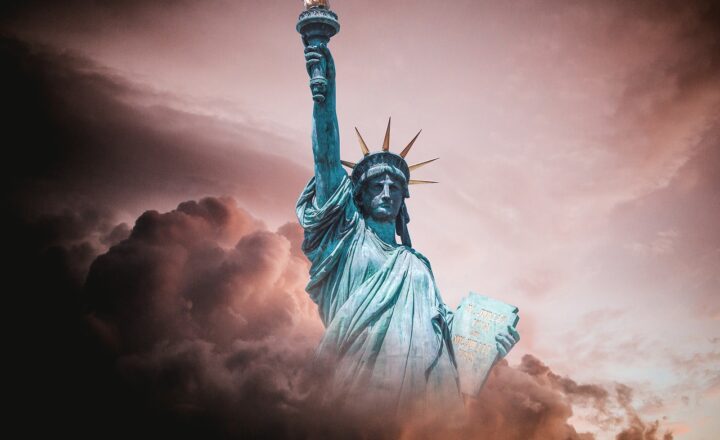The Politics of Culture: How Society Shapes Our Values and Beliefs
November 18, 2024

Culture is more than just the arts, language, or traditions that characterize a particular society. It’s the rich tapestry of beliefs, values, and norms that guide the day-to-day lives of individuals and communities. In an intricate digital age characterized by global interconnectivity, understanding the politics of culture is paramount to navigating social interactions, policy-making, and the quest for societal harmony. In this article, we will explore how culture not only reflects society but actively shapes our values and beliefs.
1. Defining Culture in a Political Context
Culture can be defined as a complex system of symbols, practices, and worldviews developed by a group of people over time. It influences and informs the political landscape, affecting how power is exercised, who holds authority, and how societies respond to issues. The political dimensions of culture encompass a wide range of factors, from economic disparities to social justice movements.
Cultural politics thus examines how cultural identifiers, such as race, ethnicity, gender, and religion, come to play a significant role in shaping the political ideologies and actions of various groups. For instance, during the Civil Rights Movement in the United States, cultural expressions—such as music, literature, and visual arts—became powerful tools in mobilizing support and framing the struggle for equality.
2. The Interplay Between Cultural Identity and Political Power
Individuals often derive a sense of identity from cultural affiliations. This identity shapes their political beliefs and influences how they engage with societal issues. A shared cultural experience can foster community solidarity, driving collective action. Conversely, perceived or real threats to cultural identity can lead to political movements that aim to reclaim power or assert dominance. In many cases, cultural identity politics have been at the forefront of modern political debates, as they underline significant issues regarding representation, rights, and acceptance.
For example, Indigenous movements across the globe highlight how culture informs unique perspectives on land use, governance, and rights. These movements seek to reclaim ancestral territories and assert cultural teachings as valid political frameworks. The struggle between preserving traditional values and adapting to modern socio-economic demands plays a significant role in shaping political discourse in multiple contexts.
3. Media as the Catalyst for Cultural Politics
Media plays an influential role in shaping cultural narratives and, by extension, political discussions. The rise of social media has transformed the dynamics of political expression and grassroots mobilization. Online platforms serve as spaces for marginalized communities to share their stories, raise awareness about social injustices, and influence broader societal beliefs.
Moreover, traditional media can perpetuate stereotypes or provide a platform for cultural exchange. The representation of various cultural identities in films, TV shows, news articles, and even advertisements can impact public perception and political ideologies. For instance, critically acclaimed films and series that portray diverse characters and nuanced narratives can challenge stereotypes and foster empathy, ultimately affecting how society engages with vulnerable or misunderstood populations.
Conversely, media bias—or the lack of representation—can foster division, hindering efforts to build a cohesive society. Social media allows for a rapid exchange of ideas but can also disseminate misinformation, polarizing communities and intensifying cultural conflicts.
4. Globalization and the Cross-Cultural Exchange
Globalization has led to an unprecedented flow of cultures across borders, creating a complex interplay that can either threaten local traditions or result in cultural enrichment. The interaction between global and local cultures often leads to hybrid identities, influencing values and beliefs in novel ways.
This globalization of culture often manifests in various aspects, such as culinary fusions, fashion trends, and pop culture phenomena. While this exchange can promote greater understanding and appreciation of diversity, it may also lead to cultural appropriation and the erosion of traditional values, igniting political tensions over cultural preservation versus innovation.
For example, the backlash against Western cultural infiltration in non-Western societies can spark protests that shape political responses. Governments may find themselves navigating the fine line between promoting cultural exchange and protecting local identities, which in itself can become a polarized political debate within the societies involved.
5. Education as a Foundation for Cultural Understanding
Education plays a crucial role in fostering cultural understanding and shaping collective values across societies. Schools, universities, and community programs can create awareness around cultural differences and promote dialogue among diverse groups. Education helps in breaking down stereotypes and fostering empathy, preparing individuals to function in diverse environments.
Incorporating multicultural education in curricula encourages students to appreciate differences and can lead to a generation more adept at engaging with complex social and political landscapes. As today’s children and young adults will shape the future, their understanding of cultural dynamics is vital for fostering inclusive societies.
However, educational systems often reflect the dominant culture, which may marginalize underrepresented groups. Therefore, reforming educational curricula to prioritize diverse perspectives is critical for ensuring that all voices are recognized and valued. This can influence political outcomes by empowering marginalized communities to advocate for their rights.
Conclusion: The Future of Culture in Politics
As we move forward into an increasingly interconnected world, the interplay of culture and politics will continue to shape our values and beliefs. Understanding this dynamic is crucial for addressing contemporary challenges, from social justice movements to national integration efforts. Cultivating cultural awareness and respect can support political leaders and communities as they strive towards inclusive governance, social equity, and mutual understanding.
Through education, open dialogue, and thoughtful representation in media, we can best navigate the complexities of cultural politics, ultimately fostering societies that embrace diversity and highlight shared values. The politics of culture is not merely about dividing lines; it’s about weaving together a collective identity that recognizes and respects the myriad paths leading to our shared human experience.







